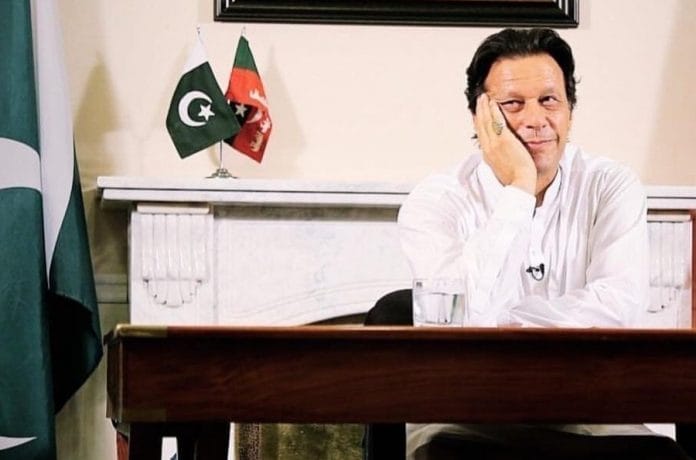Pakistan Peoples Party rejects candidature of PML-N’s Shahbaz Sharif putting the opposition’s alliance in danger.
Islamabad: Pakistan Tehreek-e-Insaf (PTI) Chairman Imran Khan is poised to become the country’s new prime minister as the opposition alliance fell apart over the nomination of his challenger ahead of Friday’s election in Parliament.
The newly-elected National Assembly, the lower house of Parliament, is meeting to elect the prime minister.
Khan, 65, the chairman of the Pakistan Tehreek-e-Insaf (PTI), and Pakistan Muslim League-Nawaz (PML-N) President Shahbaz Sharif have filed nominations for the top slot of the leader of the house.
Cricketer-turned politician Khan’s victory has become almost certain after a rift emerged in the grand opposition alliance over the candidature of PML-N chief Shahbaz.
The scrutiny of their papers was carried out in the office of the Speaker. Their papers have been accepted.
According to National Assembly Speaker Asad Qaiser, the parliament session has been summoned at 3:30 PM (1600 IST) to elect the new prime minister.
The voting will be held in open through division of members in different galleries designated for different candidates.
The Prime Minister-elect will take oath Saturday.
The PTI emerged as the single largest party with 116 seats in 25 July elections. Its number increased to 125 after nine independent members joined it and final tally reached 158 after it was allotted 28 out of 60 seats reserved for women and five out of 10 seats reserved for minorities.
The PTI has the support of smaller parties including Muttahida Quami Movement’s seven seats, Balochistan Awami Party’s five, Balochistan National Party’s four, Pakistan Muslim League’s three, Grand Democratic Alliance’s three, Awami Muslim League and Jamori Watan Party’s one seat each.
Khan may take a lead of 30 to 35 votes in the election for the office of prime minister, Dawn reported.
His party’s spokesman Faisal Javed told the media that preparations are going on for the oath taking ceremony of Khan.
Javed said that Khan will don a black sherwani on the occasion. The ceremony will be held at the President House and President Mamnoon Hussain will administer the oath to the premier. The ceremony will be kept simple.
Meanwhile, the rift persisted in the grand opposition alliance over the candidature of Sharif, the paper said.
The Pakistan Peoples Party (PPP) has asked the PML-N to review its decision and nominate someone else as a joint candidate of the 11-party opposition alliance in place of Sharif, who was said to have passed derogatory remarks against PPP co-chairman and former president Asif Ali Zardari in the recent past.
However, the PML-N reacted strongly and threatened that this could lead to change of the leader of the opposition and the chairman of the Senate.
Senior PML-N leader Mushahid Hussain said the opposition alliance was formed to ensure fair and free elections in the country but if the PPP stuck to its stance, the alliance would collapse, the paper added.
PPP spokesman Mustafa Nawaz Khokhar said the party decided after a detailed discussion that it would not take part in the election of the leader of the house.
The alliance was further weakened when Jamaat-i-Islami also announced to abstain during the voting of the prime minister.
The PTI is in a comfortable position and Khan is likely to get more than the required 172 votes in the 342-member lower house of Parliament. Its nominees for speaker and deputy speaker secured 176 and 183 votes respectively.
Shehbaz may become the leader of the opposition in Parliament as his party commands maximum votes in the house after the PTI. The PML-N has 82 seats, followed by the PPP with 53 seats and the MMA 15 seats.
If elected, Khan’s government will be the third consecutive democratic government in Pakistan since 2008 when military ruler General Pervez Musharraf announced elections after serving as president from 2001 to 2008 following a bloodless coup in 1999.
The PPP formed the government in 2008, followed by the PML-N led by jailed former prime minister Nawaz Sharif in 2013.
Pakistan’s powerful military has ruled the country through various coups for nearly half of the country’s history since independence in 1947. Even during the civilian rule, the generals have wielded enormous power, setting the agenda for the country’s foreign and security policies.- PTI






